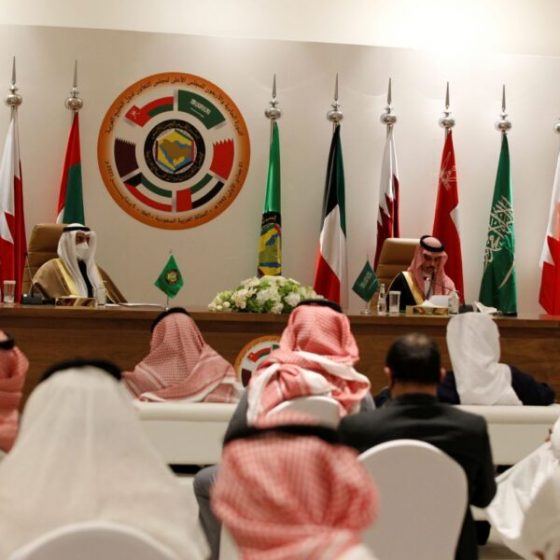
America might “be back” for most of the world, however for the Middle East the only thing it is “back” to, is Obama’s “soft power” touch in the area.
GCC countries have a lot to gain from Assad on how to survive an uprising and how to remain in power. However what he can actually teach them is how to manage Moscow
In early June, the world was rocked by news from the Middle East that Gulf Arab leaders are now moving even further to becoming a full-on ally of Syrian leader Bashir al-Assad. Now, all nations have their embassies re-opened in Damascus with Saudi Arabia being the last to jump on the bandwagon and the new position of these GCC states is to surpass merely bringing him in from the cold however to accept him. Soon, we will see Syria restored in the Arab League, an organization largely known all over the world as an Arab elite talk store which only makes the headings when its members have a very good lunch and frequently sleep in the afternoon throughout the speeches.
On the face of it, the move is pragmatic, even erudite. Assad is the ultimate survivor who has actually combated and won a counterrevolution against the very individuals– the Muslim Brotherhood– which most (not all) GCC states dislike emphatically.
Yet there is some paradox now with those exact same Gulf Arab countries utilizing their impact in Washington to attempt and encourage Joe Biden’s administration that it is time to raise sanctions versus Syria. Undoubtedly, it is the Biden touch which has actually pushed Saudi Arabia, UAE and others towards this severe step of “if you can’t beat them, join them.” America might “be back” for most of the world, but for the Middle East the only thing it is “back” to, is Obama’s “soft power” touch in the region.
And what this translates to for the elite of these wobbly states, is ignore the U.S. ever assisting us with another Arab Spring transformation.
With Trump, they might have thought that he would do his best to keep them in power. With Biden, they understand this is difficult and that they are genuinely alone.
And this is where Assad can be found in.
While it is definitely true that the GCC states will want to exchange information and intel with Assad about his own experiences battling an uprising, which will likewise extend to the darker side of autocratic governance like new abuse methods, Assad would be extremely useful as a channel to handle a new, stronger danger from Iran, which, once again, the GCC states don’t think the U.S. will help them with.
A more powerful Iran, run by a hardliner president, requires extreme steps and these Gulf Arab nations are hedging their bets that if they can use Assad as a communicator and backchannel arbitrator, then this could be beneficial in relaxing stress while interesting his pan-Arabism. In fact, the idea is nothing new. In 2007, the EU and the U.S. wished to use Assad to interact with Hamas, Hezbollah and the Iranians in precisely the same method.
Yet there is more to it than fulfills the eye.
The jewel in the crown for GCC nations to restore their relations with Assad is Russia. In September 2015, when Moscow intervened in the Syria war, Assad sticks on to power by the Russian air force getting here in Syria. This game changer is the main reason that Assad is still in power today as without Putin’s aid, Syria today would be run by Islamic extremists and would almost certainly not be one country.
Therefore to be close to Assad suggests being even better to Russia. In truth, some Gulf Arab leaders had already started speaking to Russia about arms handle what is ending up being an increasingly difficult relation to sustain with the U.S. under Joe Biden. It is unclear how far those talks went although they did stir the rage of Washington which complained the moment the news headed out. Biden wishes to crack the whip in the Middle East on human rights, ruling in authoritarian leaders like MbS, Sisi and perhaps even MbZ, but also desires those same nations to keep their commitment to U.S. arms makers.
Possibly in those talks Putin’s top consultants pointed out that striking substantial offers on jets and tanks, for instance, would have to come with some assurances about those weapons not being utilized on Moscow’s allies. Of course, no GCC state would ever utilize a jet, wherever it is made, to bomb Iran. That is unimaginable. But they might consider bombing Iran’s allies and proxies in the region.
More than likely the transfer to get closer to Assad is to appease Russia before a new deal is signed off. If these very same GCC countries can concur not to utilize Russian weapons to equip proxies which fight Assad, Hezbollah, Iranian militias in Iraq or the Houthis, then the brand-new relationship with Assad is a win-win for them. Throw into the deal that it would also push away Qatar, who would definitely not register to a Russia arms deal and is still quite an advocate of the opposition in Syria, and the Saudis and Emiratis are chuckling all the way to the bank. Yet Qatar might show to be an essential gamer in the endgame. If GCC nations go ahead with arms acquiring– with the indirect agreement from Moscow that its forces will keep them in power come any uprising– it may well be Qatar, which has one of the biggest U.S. military bases in the world, will be more warmly invited in Washington.

